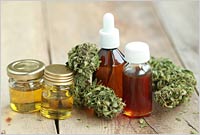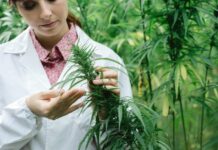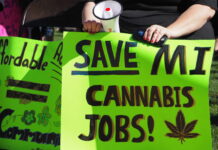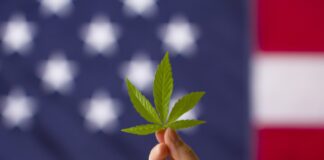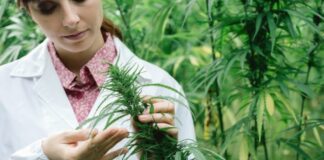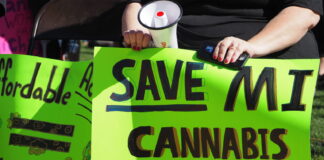December 21, 2018
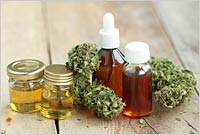 Following yesterday’s passage of the 2018 Farm Bill, US Food and Drug Administration Commissioner Scott Gottleib issued a statement with regard to the agency’s oversight of products commercially marketed as ‘hemp-derived’ CBD.
Following yesterday’s passage of the 2018 Farm Bill, US Food and Drug Administration Commissioner Scott Gottleib issued a statement with regard to the agency’s oversight of products commercially marketed as ‘hemp-derived’ CBD.
The FDA states: “We’re aware of the growing public interest in cannabis and cannabis-derived products, including cannabidiol (CBD). This increasing public interest in these products makes it even more important with the passage of this law for the FDA to clarify its regulatory authority over these products. In short, we treat products containing cannabis or cannabis-derived compounds as we do any other FDA-regulated products — meaning they’re subject to the same authorities and requirements as FDA-regulated products containing any other substance. This is true regardless of the source of the substance, including whether the substance is derived from a plant that is classified as hemp under the Agriculture Improvement Act.”
The FDA maintains that nothing in the 2018 Farm Act overrides the authority of the agency “to regulate products containing cannabis or cannabis-derived compounds under the Federal Food, Drug, and Cosmetic Act (FD&C Act) and section 351 of the Public Health Service Act.” It further states: “Additionally, it’s unlawful under the FD&C Act to introduce food containing added CBD or THC into interstate commerce, or to market CBD or THC products as, or in, dietary supplements, regardless of whether the substances are hemp-derived. … We’ll take enforcement action needed to protect public health against companies illegally selling cannabis and cannabis-derived products that can put consumers at risk and are being marketed in violation of the FDA’s authorities.”
It concludes: “While products containing cannabis and cannabis-derived compounds remain subject to the FDA’s authorities and requirements, there are pathways available for those who seek to lawfully introduce these products into interstate commerce. The FDA will continue to take steps to make the pathways for the lawful marketing of these products more efficient.”
Provisions of the 2018 Farm Bill amend the federal Controlled Substances Act of 1970 so that hemp plants containing no more than 0.3 percent THC are no longer classified as a schedule I controlled substance under federal law. The Act also broadens the definition of ‘hemp’ (Section 297A) to include “any part of the plant, including …. extracts [or] cannabinoids” that do not possess greater than 0.3 percent THC on a dry weight basis. This language seemingly allows for the future legalization (under federal law) of some CBD-specific products, presuming they are derived from licensed hemp producers who are in compliance with both state and federal regulations, and are marketed in such a way that does not violate the Food, Drug and Cosmetics Act. However, to date, significant disagreement exists among experts as to whether traditional hemp plants are a viable source for cannabinoid extraction.
NORML Political Director Justin Strekal said that greater oversight of the market is in the best interest of consumers:
“Future regulatory efforts at the state and federal level will likely still be required to address emerging consumer issues when it comes to the commercial sale and marketing of hemp-derived products, particularly so-called hemp-derived CBD extracts,”
“Increasingly, many of the producers of these products have navigated in a dubious grey area of the law — manufacturing products of variable and sometimes questionable quality and safety. It is imperative that lawmakers to craft consistent benchmark safety and quality standards to boost consumer confidence and ultimately be able to hold bad actors accountable as this nascent industry transitions into a legal marketplace.”
You can see the NORML factsheet on CBD by clicking here.
On Background:
What is hemp?
Unlike traditional cannabis, which is primarily grown for the purpose of harvesting its flowers, industrial hemp is a fibrous crop grown mainly for its stalk and seeds — which can be utilized in the manufacturing of textiles, paper, animal feed, food-stuffs and numerous other products. Because only trace levels of THC, the primary psychotropic compound in marijuana, is present in hemp, most countries — including Canada and Japan — appropriately define it as an agricultural crop and not as a controlled substance. In fact, according to the Congressional Research Service, “The United States is the only developed nation in which industrial hemp is not an established crop.”
What is CBD?
Cannabidiol is one of a number of naturally occurring cannabinoids in the cannabis plant. It possesses a number of known therapeutic effects, such as anxioltytic and anti-convulsant effects. Like other cannabinoids, it is most prominent in cannabis flowers, and not in the plant’s stalks. As a result, some experts opine, “Traditional hemp is an inefficient source of CBD.” Federal agencies like the US Food and Drug Administration maintain that CBD sourced from traditional cannabis meets the criteria of a schedule I controlled substance.
Are commercially available CBD products safe and effective?
In recent years, marketers have advertised a variety of ‘hemp-derived’ CBD-related products online and in other venues. However, third-party analytical testing of some of these products has consistently found them to be of varying quality and safety. In some instances, products have been found to contain far lower percentages of CBD than advertised. In other instances, products alleging to be THC-free have been found to possess THC as well as other psychotropic adulterants. Further, in almost all instances, commercially available CBD products contain far lower quantities of CBD than are necessary to yield therapeutic effects in clinical trials.


